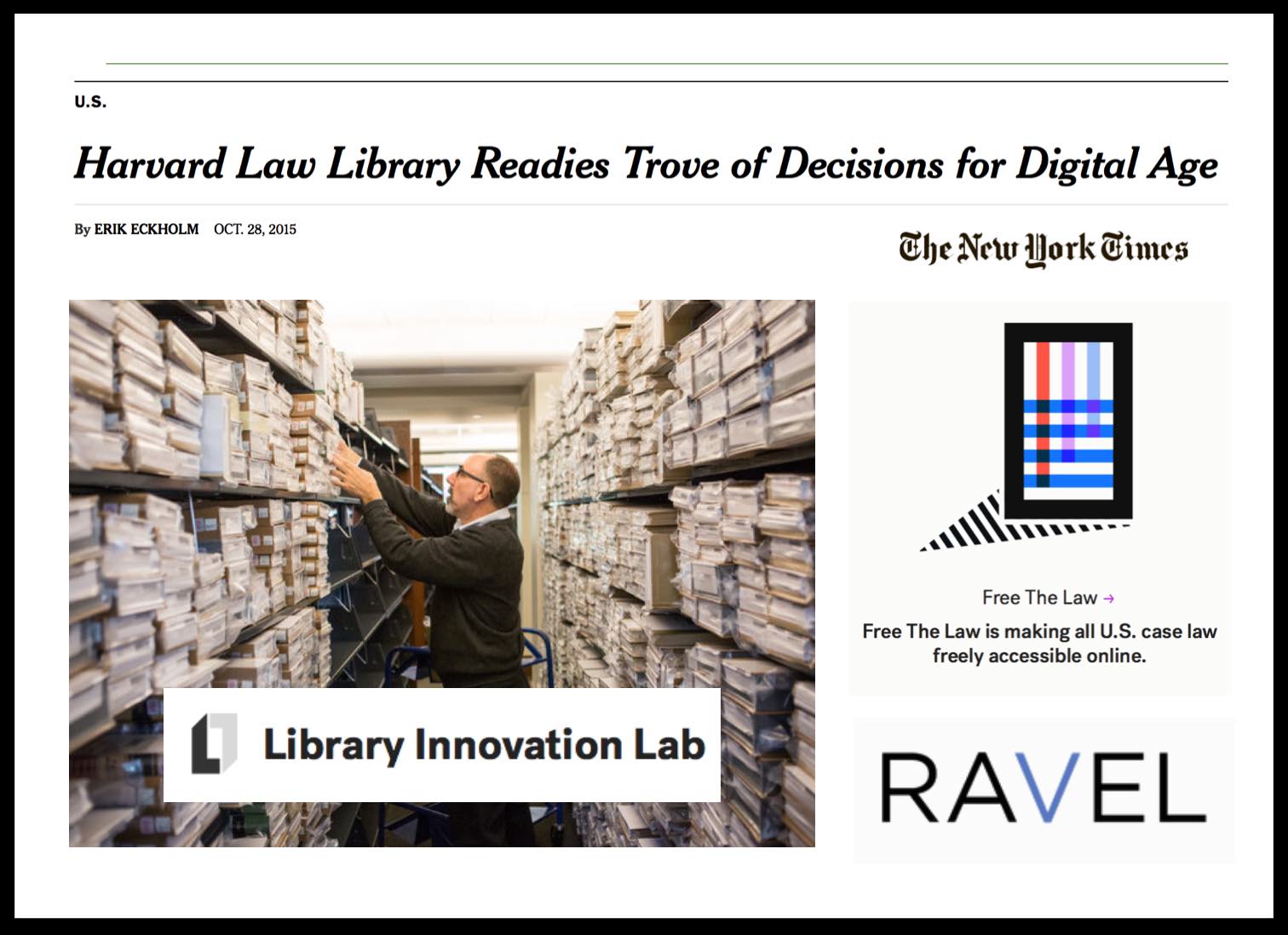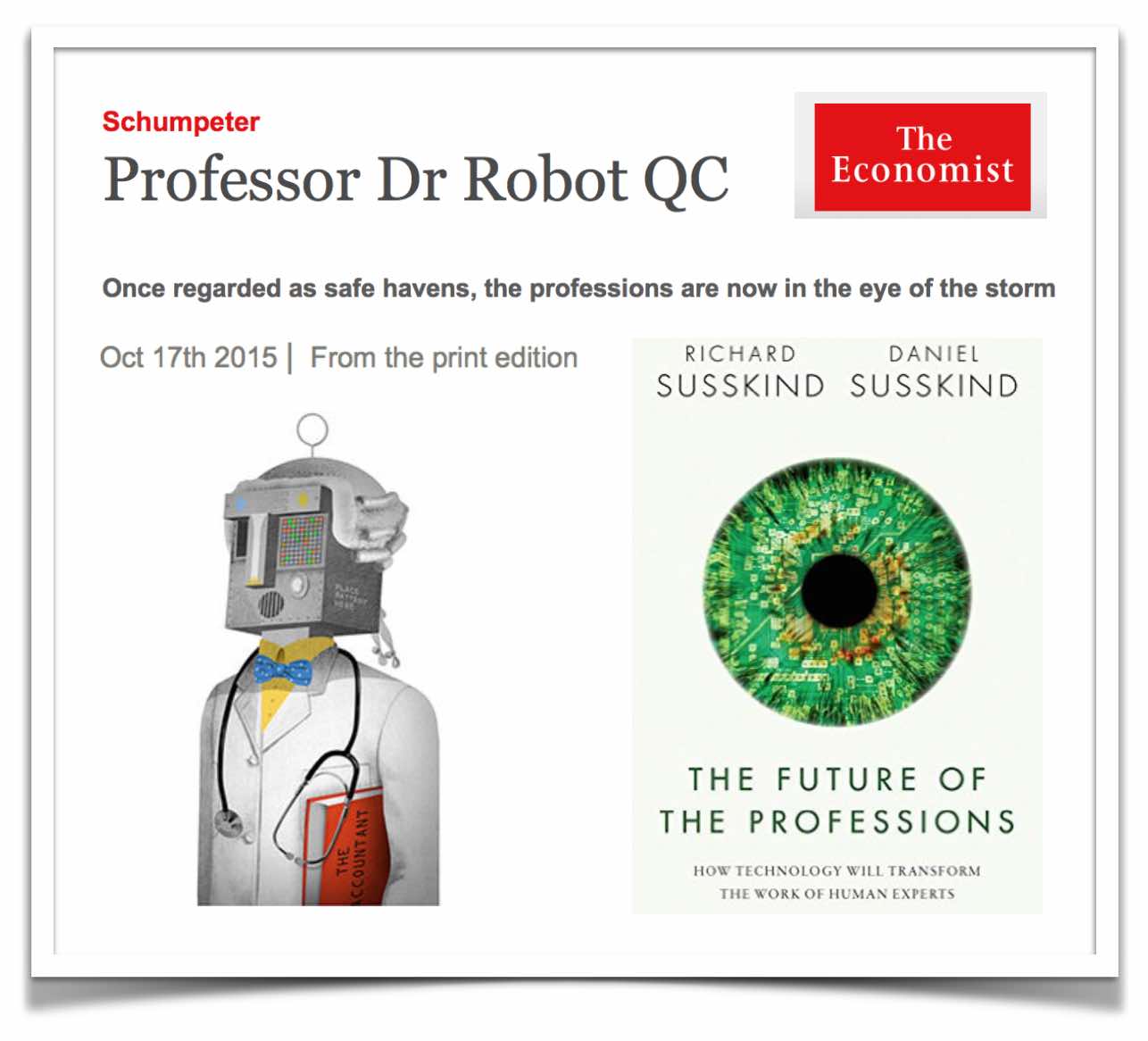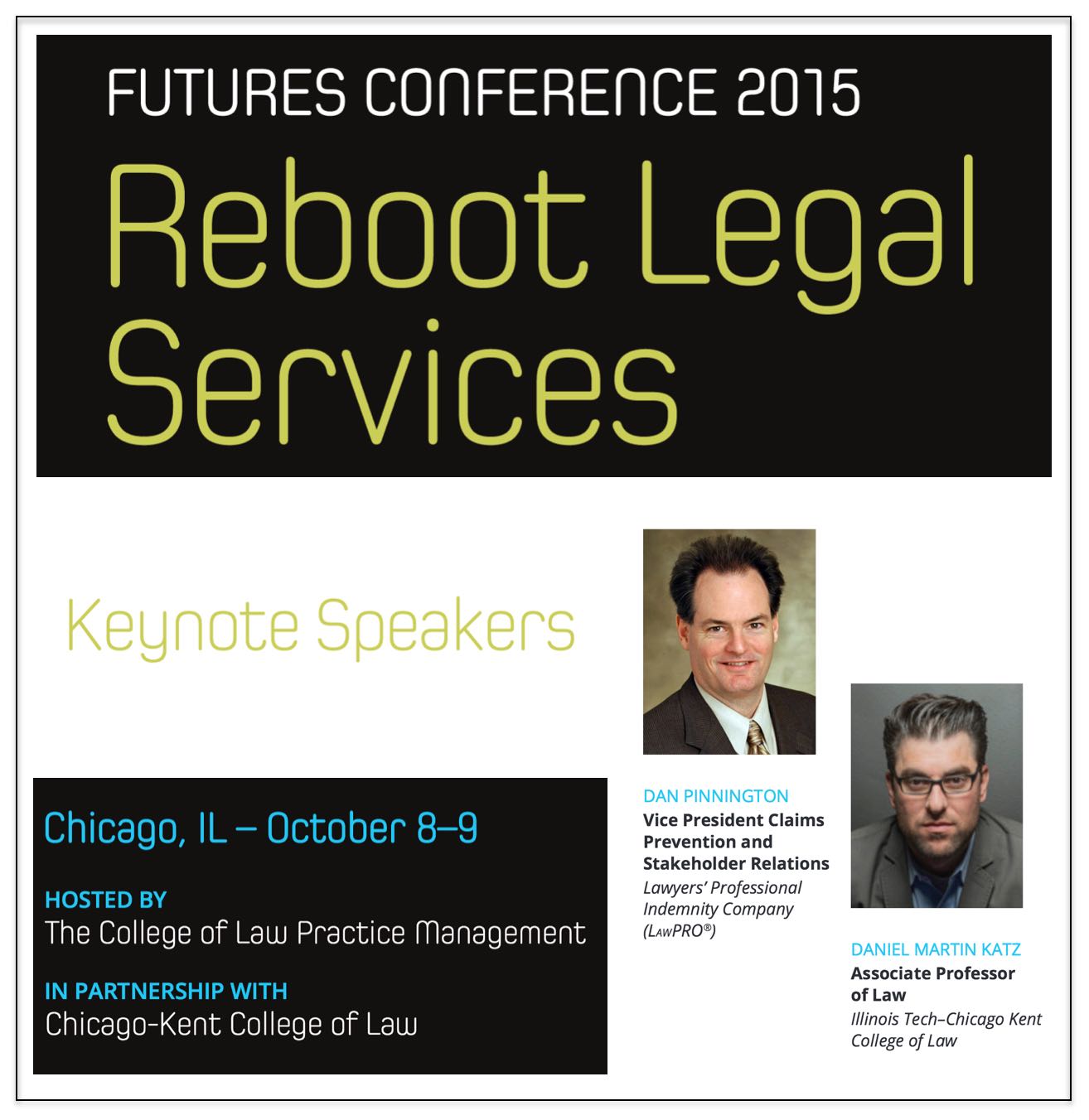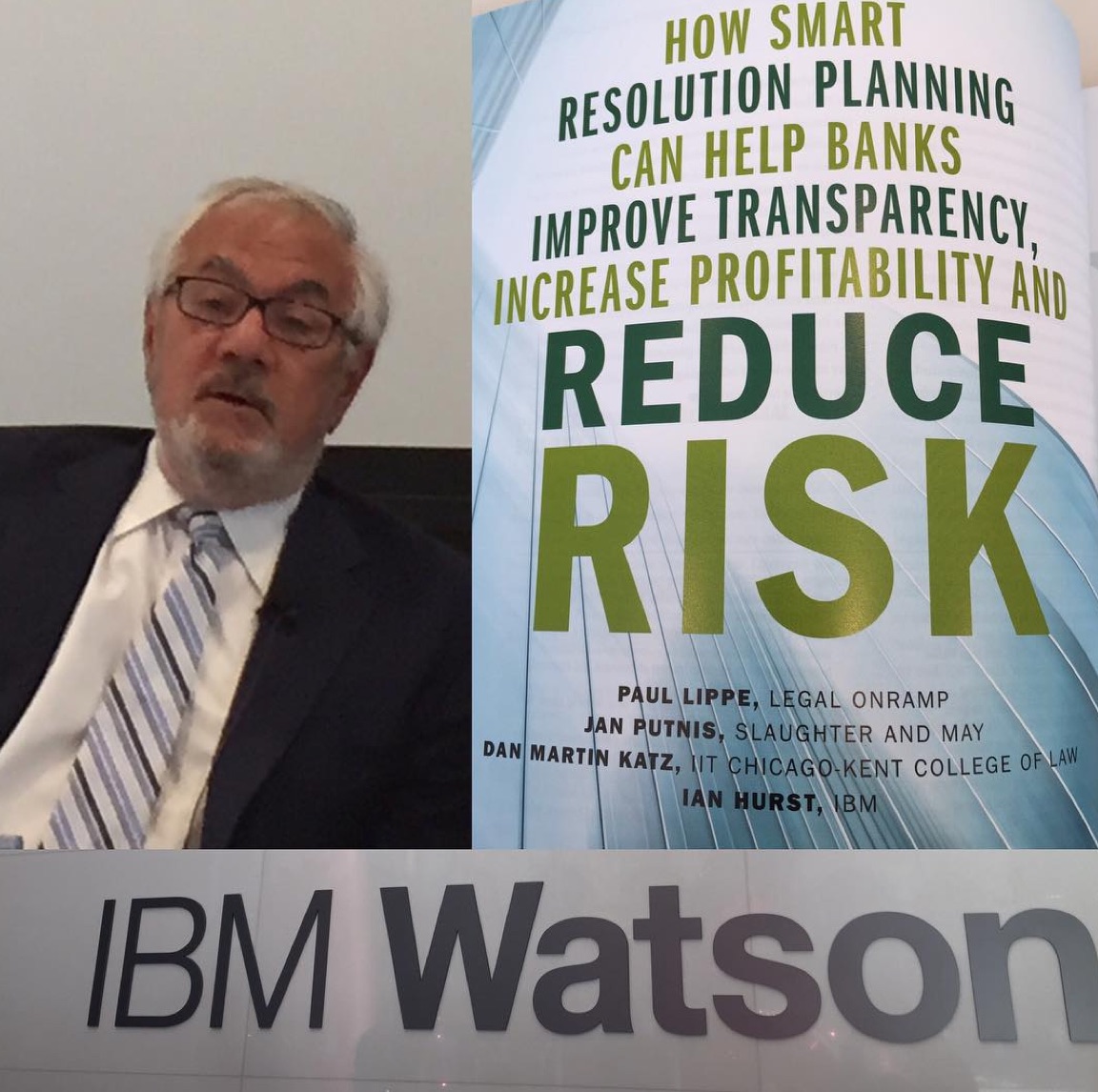Tag: legal technology
Google Just Open Sourced TensorFlow, Its Artificial Intelligence Engine (via Wired)
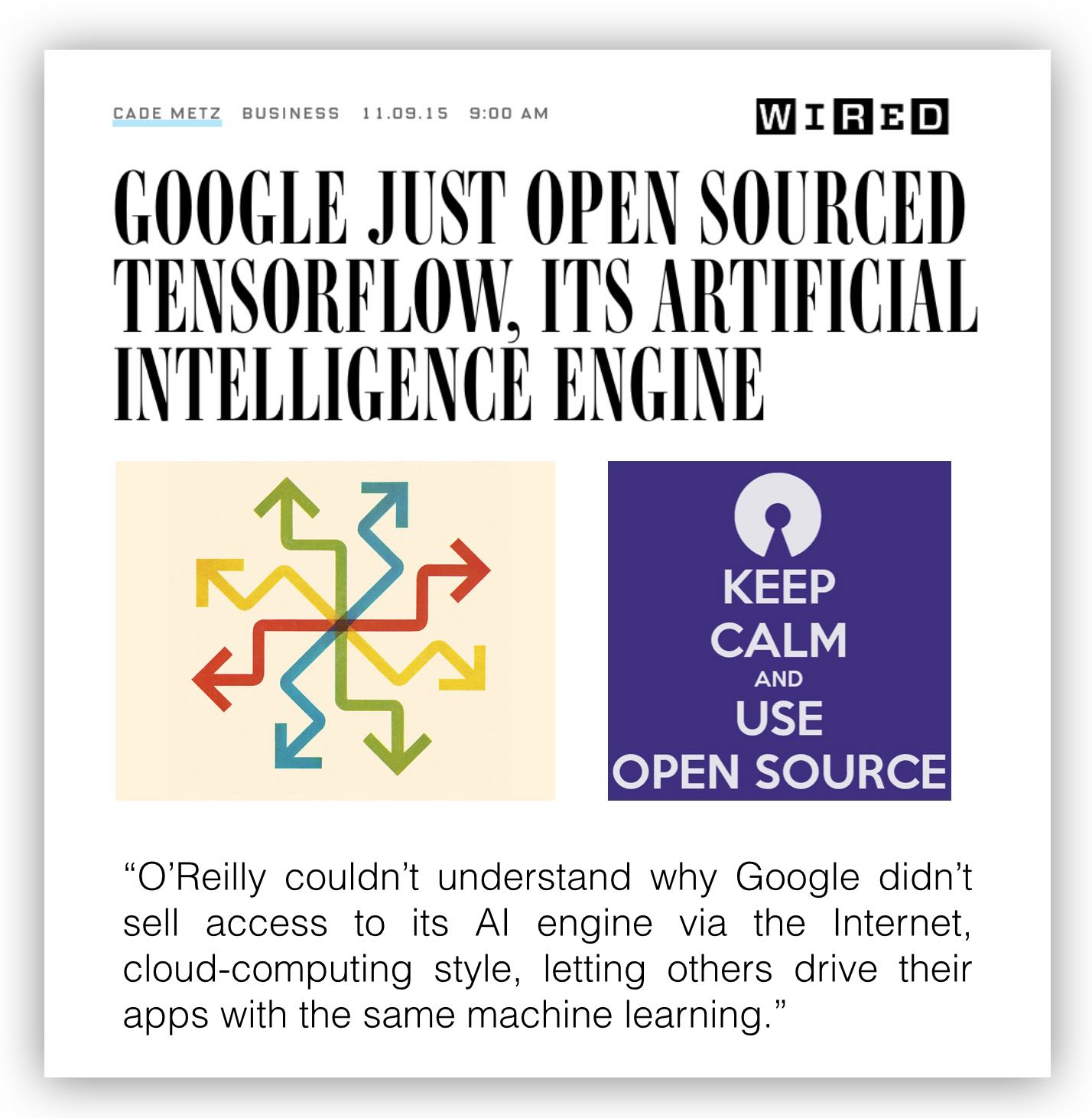 Obviously this move is pretty significant for those trying to sell machine learning in a SAAS style model / machine learning as a service (ML_AAS). Together with the significant amount of ML technology that is already in the opensource ecosystem – this will put more pressure on customization / configuration around problems with a much smaller premium on having access to certain forms of base models/algorithms.
Obviously this move is pretty significant for those trying to sell machine learning in a SAAS style model / machine learning as a service (ML_AAS). Together with the significant amount of ML technology that is already in the opensource ecosystem – this will put more pressure on customization / configuration around problems with a much smaller premium on having access to certain forms of base models/algorithms.
LexPredict – Empowering the Future of Legal Decision Making
LexPredict is an enterprise legal technology and consulting firm, specializing in the application of best-in-class processes and technologies from the technology, financial services, and logistics industries to the practice of law, compliance, insurance, and risk management.
We focus on the goals of prediction, optimization, and risk management to enable holistic organizational changes that empower legal decision-making. These changes span people and processes, software and data, and execution and education.
Law Firm COO & CFO Forum Pre-Conference Workshop on Big Data / Legal Analytics / Legal Informatics
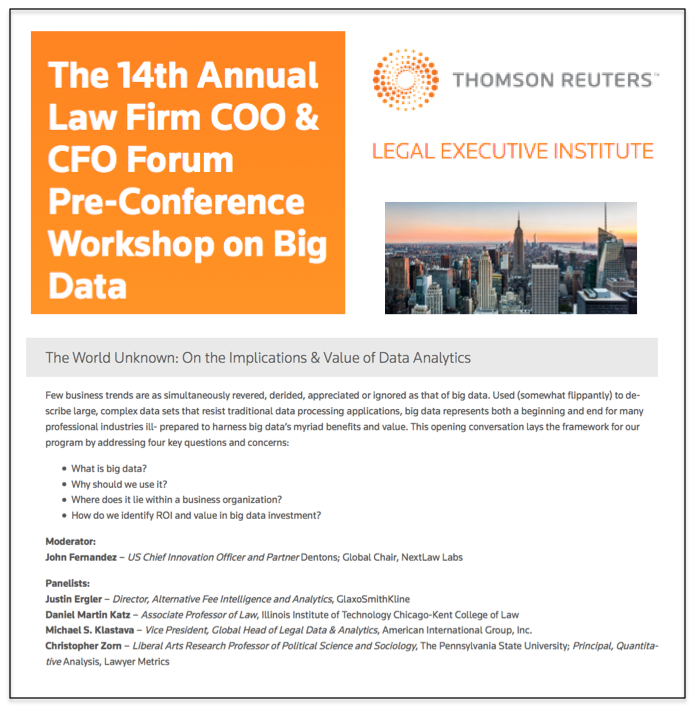 Yesterday I had the pleasure of participating in the Thomson Reuters Law Firm COO & CFO Forum Pre-Conference Workshop on Big Data. The half day workshop explored various way that law firms and outside counsel can use data to be better lawyers and run better businesses.
Yesterday I had the pleasure of participating in the Thomson Reuters Law Firm COO & CFO Forum Pre-Conference Workshop on Big Data. The half day workshop explored various way that law firms and outside counsel can use data to be better lawyers and run better businesses.
Here is the information for my panel (below) and the full program is located here.
Few business trends are as simultaneously revered, derided, appreciated or ignored as that of big data. Used (somewhat flippantly) to describe large, complex data sets that resist traditional data processing applications, big data represents both a beginning and end for many professional industries ill- prepared to harness big data’s myriad benefits and value. This opening conversation lays the framework for our program by addressing four key questions and concerns:
- What is big data?
- Why should we use it?
- Where does it lie within a business organization?
- How do we identify ROI and value in big data investment?
Moderator:
John Fernandez – US Chief Innovation Officer and Partner Dentons; Global Chair, NextLaw Labs
Panelists:
Justin Ergler – Director, Alternative Fee Intelligence and Analytics, GlaxoSmithKline
Daniel Martin Katz – Associate Professor of Law, Illinois Institute of Technology Chicago-Kent College of Law; Chief Strategy Officer, LexPredict
Michael S. Klastava – Vice President, Global Head of Legal Data & Analytics, American International Group, Inc.
Christopher Zorn – Liberal Arts Research Professor of Political Science and Sociology, The Pennsylvania State University; Principal, Quantitative Analysis, Lawyer Metrics
2015 Legal Management Forum – Madrid
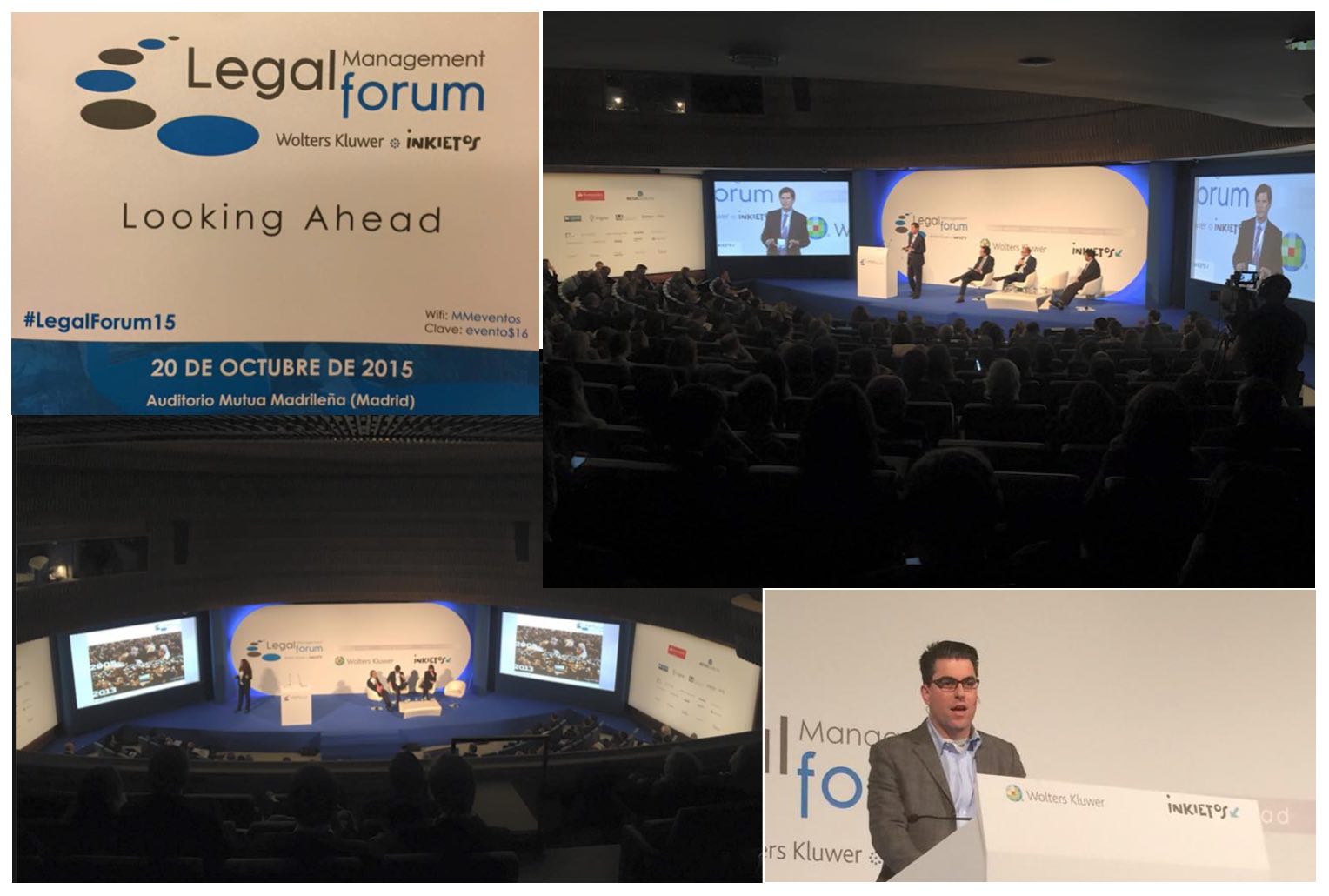 “Organized by Wolters Kluwer and Inkietos, and under the honorary presidency of His Majesty Felipe VI, the Legal Management Forum aims to serve as a space for reflection and knowledge of the main challenges and opportunities related to management in the legal profession.”
“Organized by Wolters Kluwer and Inkietos, and under the honorary presidency of His Majesty Felipe VI, the Legal Management Forum aims to serve as a space for reflection and knowledge of the main challenges and opportunities related to management in the legal profession.”
The global legal innovation conversation is growing and it was my pleasure to deliver the keynote address to the more than 400 in attendance here in Madrid.
PLI Corporate Counsel Institute 2015
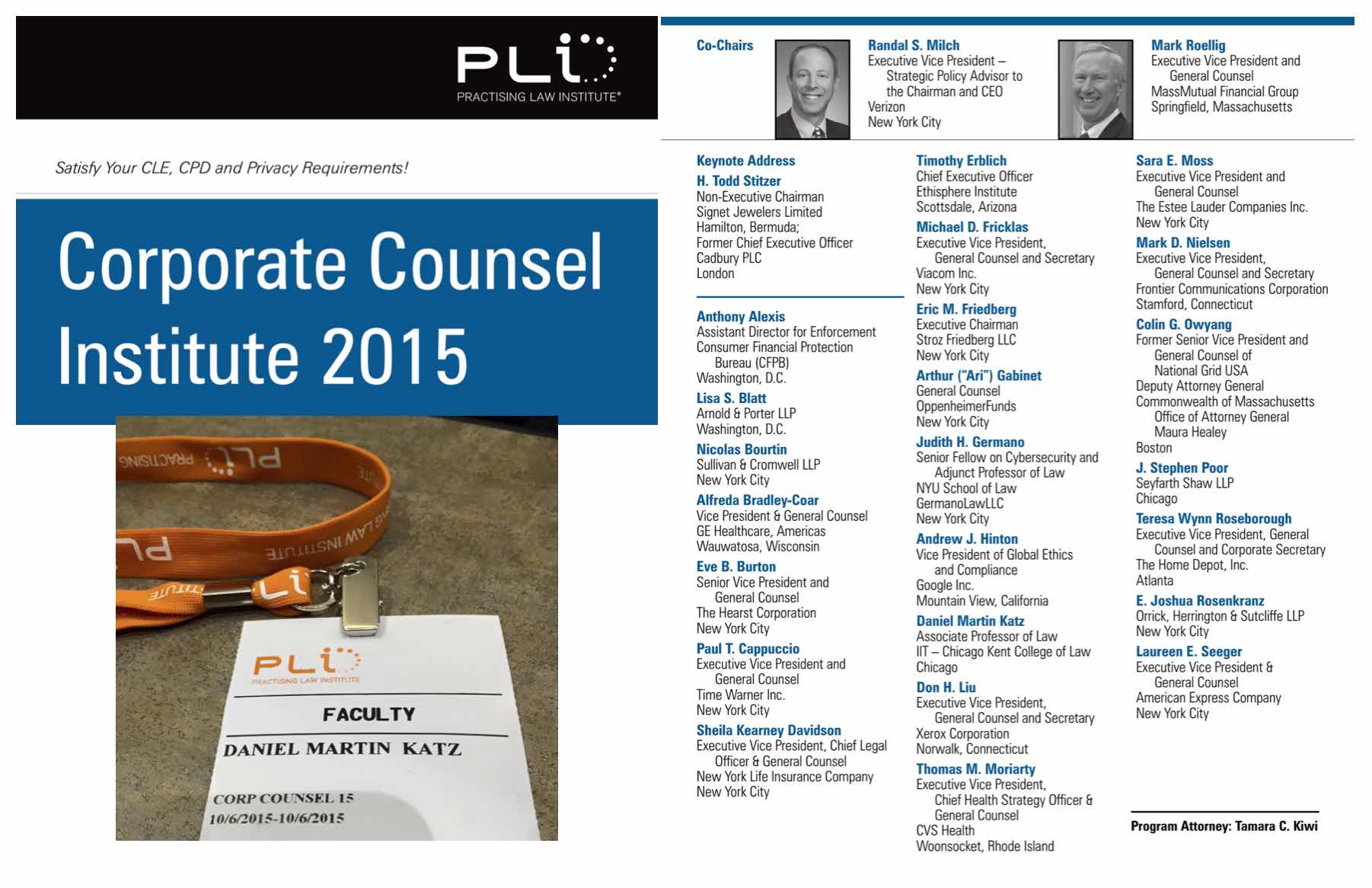 It was my pleasure to join a world class group of corporate lawyers at the 2015 PLI Corporate Counsel Institute in NYC. Thanks to Mark Roellig (Mass Mutual), Randy Milch (Verizon) and the folks at PLI for inviting me to participate!
It was my pleasure to join a world class group of corporate lawyers at the 2015 PLI Corporate Counsel Institute in NYC. Thanks to Mark Roellig (Mass Mutual), Randy Milch (Verizon) and the folks at PLI for inviting me to participate!
Machine Learning Explained (via Google’s Nat + Lo)
Pretty useful summary which is something we try to teach our students in our Legal Analytics Course (which could really be called Machine Learning for Lawyers). BTW – For those of you who emailed us, we promise to fill out the balance of the set of free, online Legal Analytics course materials in the coming months.
Your Lawyer May Soon Ask This AI-Powered App for Legal Help (via Wired)
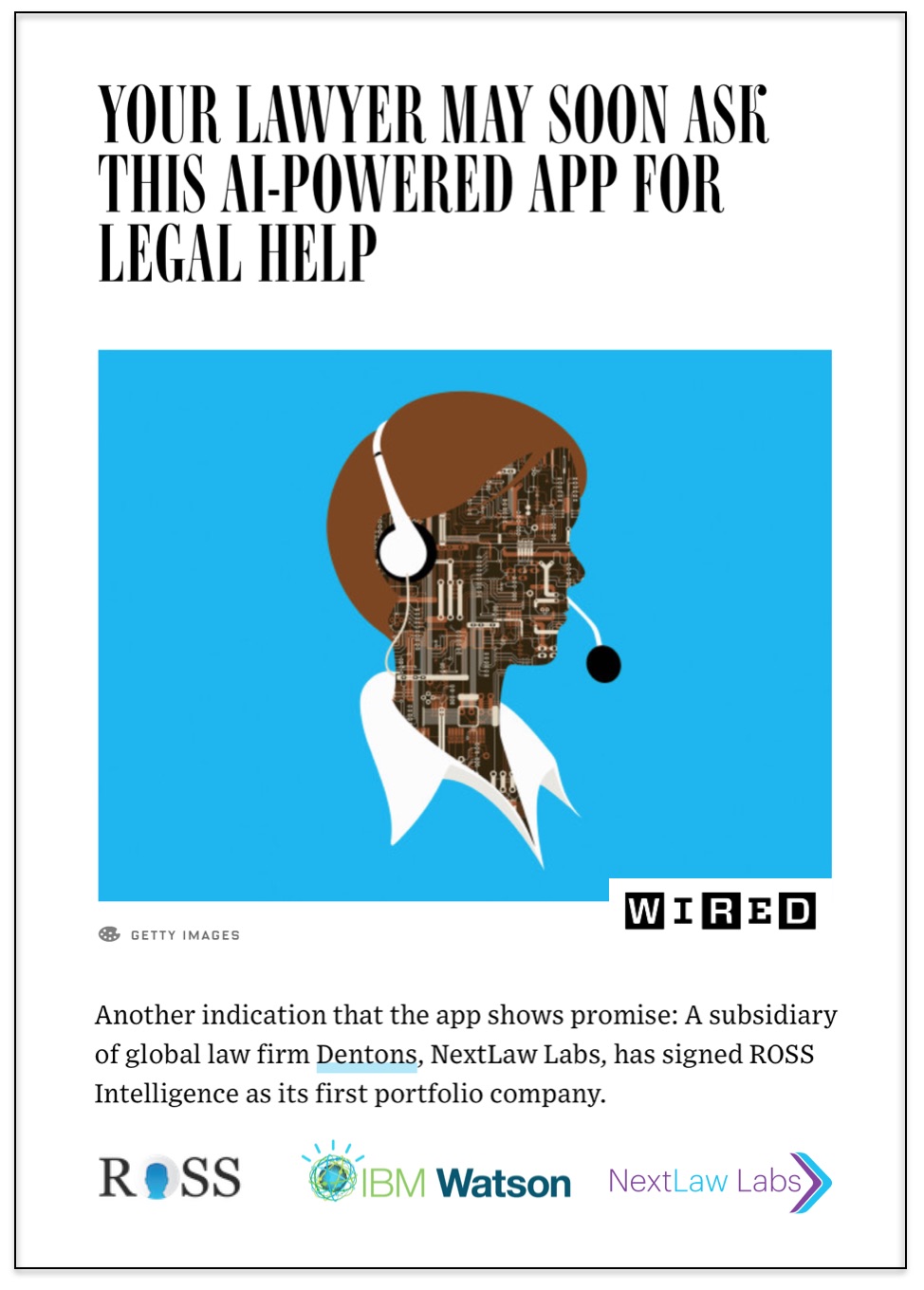 “I thought back to that big problem lawyers face in their day-to-day work, and how it impacts regular people,” Ovbiagele tells WIRED. “I thought we should apply the capabilities of machine learning to tackle this problem and make things better for lawyers and for clients.”
“I thought back to that big problem lawyers face in their day-to-day work, and how it impacts regular people,” Ovbiagele tells WIRED. “I thought we should apply the capabilities of machine learning to tackle this problem and make things better for lawyers and for clients.”
“LegalRank can figure out which results get preferential results, whether that’s prioritizing a case that has more citations, knowing that a Supreme Court case should rank higher than a local decision, and other nuances.”
A subsidiary of (world’s largest) global law firm Dentons, NextLaw Labs, has signed ROSS Intelligence as its first portfolio company.
Full disclosure – I am a member of the advisory board of NextLaw Labs.
Using Technology and System Design to Improve the Dodd-Frank Resolution Planning Requirement (+ Better Manage Complexity)
This past week, I had the pleasure of participating in a half day closed door session with about ~40-50 folks from the financial services industry including several of the world’s finest law firms, representatives from SIFI and non-SIFI financial institutions as well as folks from IBM Watson and LegalOnRamp (a Watson eco-system partner).
The specific subject was RRP – the resolution planning / living wills requirement under Dodd Frank. Former Congressman Barney Frank provided opening remarks and joined the group for the balance of the half day session. Paul Lippe and I discussed our recent paper on Resolution Planning that was published in Banking Perspective (The Journal of The Clearing House).
As we argue in the paper, the ‘too big to fail argument’ is not really that intellectually forceful. The question – properly posed – is what to do about complexity and the management of complex systems. The complex and interdependent nature of the banking ecosystem is the feature that really challenges efforts to develop robust regulatory / management structures. This would be true even if existing financial institutions were made smaller.
Our conversation was about how to use technology and system redesign to confront and manage wide scale complexity. The resolution planning challenge should not just be focused upon clearing the existing regulatory hurdle but actually can be an opportunity for organizations to build better financial/legal information infrastructure (ultimately leading to an internet of contracts or more broadly an internet of legal things). In building a better financial/legal information infrastructure, banks will be better positioned to manage/properly price risk.

